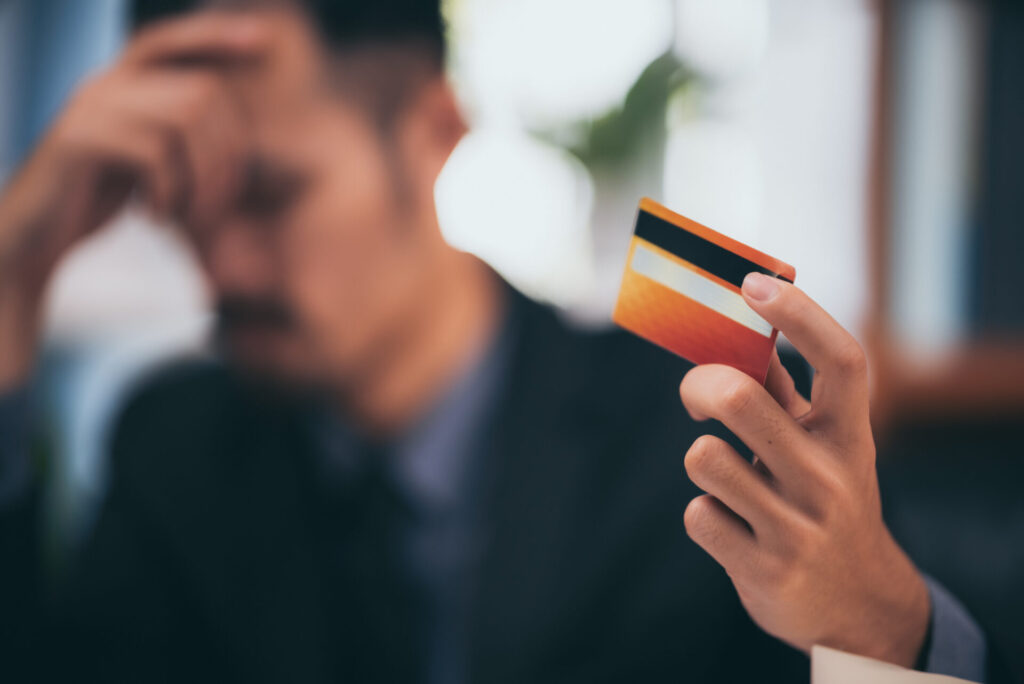What Are Private Student Loans?
There are two primary types of student loans: federal and private. Federal student loans are supported and backed by the federal government, meaning they are highly regulated. Well-known banks can issue private student loans and usually have higher interest rates than federally backed loans.
Private student loans are difficult to cancel, and forgiveness programs are not lawfully required. Borrowers do not have the same legal options to cancel or have their private student loans forgiven as they might if they had federal student loans.
There are examples of private student loan forgiveness and cancellation programs. Still, they are rare and often difficult to qualify for. Some lenders only offer such programs under certain circumstances, such as a debtor developing a disability or if the primary borrower of a student loan you co-signed with passes away. You can ask a private lender if they offer cancellation or forgiveness programs, but the law does not require them to assist you.
Are You Facing Litigation for Your Unpaid Private Student Loans?
When students decide to take on student loan debt, they are doing so with the belief that the education they will obtain will provide them with more career opportunities, thus providing a higher earning capacity, a better lifestyle, and a way to pay back their debts. Unfortunately, many borrowers’ expectations are dashed upon graduating because of high employment rates, reduced salaries, and unenviable employment opportunities. In some cases, newly graduated students may find themselves employed in the same jobs they could have obtained without an expensive education. Despite these difficulties, private student loan payments are required monthly in hundreds or thousands of dollars. Many borrowers cannot afford to pay the lenders, placing a substantial financial burden on themselves, their financial futures, and their family’s quality of life.
A lender may file a lawsuit at any time after a student loan has entered default, usually after at least six consecutive monthly payments have been missed or ignored. If a lender files a lawsuit against you seeking payment, you may have debt defense strategies, such as bankruptcy or debt forgiveness programs. You must raise your defense in a formal response to litigation. Otherwise, you will most likely lose your opportunity to get out of your outstanding debt.
Our Colorado law firm helps students and graduates facing student loan obligations and lawsuits. We can provide valuable legal guidance in negotiating more affordable repayment plans, defending against debt collection actions, and developing other legal defense strategies to help you through this difficult time.
What Are Common Mistakes People Make When Faced with Student Loan Lawsuits?
Getting sued for a defaulted private student loan can be frightening and mortifying. In many cases, those facing litigation for student loan debt have never been sued before, so they do not always know what to expect or how to proceed in the legal process. Dealing with debt collectors, lawyers, courts, and judges can be overwhelming, especially without dedicated legal representation.
You must remember that just because litigation has begun does not mean all hope is lost. You have rights, and you have options. While no one can tell you with any certainty what the outcome of your lawsuit could be, there are certain things you should not do, as they will likely harm your case.
Common mistakes borrowers make in student loan litigation cases:
- Failing to respond to the lawsuit is unacceptable. Suppose you hope to defend yourself against the lender’s lawsuit and make your voice heard. In that case, you must respond to that lawsuit with a formal legal document within strict deadlines. Failure to respond could result in you automatically losing your case. Without a formal response, the student loan lender could ask the court for a judgment on the basis that their complaint has gone uncontested
- Always raise affirmative defenses as to why you should not pay back what the lender says you owe. Depending on your case, you may have several valid legal defenses, such as claiming that the balance is higher than it should be or that the lawsuit is outside the statute of limitations. If you can succeed in one of your defenses, it is possible to get your case dismissed
- Failing to show up to court is not a viable option. Court hearings are not voluntary. You may be required to attend several scheduled hearings during the litigation proceedings. You must attend all the scheduled hearings. If you do not, the student loan lender could ask that the case be decided in their favor
- Do not immediately agree to make the debt payments. Debt collectors sometimes pressure borrowers to pay back money immediately when litigation begins. Doing so will not necessarily stop the lawsuit from proceeding. Making payments without consideration of the consequences could invalidate some of your legal defenses
- Watch what you say to debt collectors. A debt collector can be intimidating and utilize pressure tactics to get what they want. Sometimes, they might be incredibly polite and even claim to sympathize with your plight. Regardless of their attitude, anything you say to them could be used against your case for debt collection purposes
What Could Be Useful Defenses to Student Loan Debt Lawsuits?
As your legal counsel, our attorney will explore many different defense tactics if you are contending with a complex student loan lawsuit.
Depending on the particulars of your case, legal defense strategies could include the following:
- Affirmative defense examples include lack of privity, incorrect balance, accordance satisfaction, and lack of standing
- Are you the victim of identity theft? It’s possible that the records are incorrect and that you never agreed to pay that in the first place, meaning that the debt is not yours to pay
- Has your student loan been transferred or sold? If the private lender cannot establish how they came to own your student loan debt, it can be difficult for them to collect on that debt legally
- Some debtors may qualify for bankruptcy, and their student loan debt could be discharged
- The infancy defense is another potential strategy to consider. Private student loans require that the borrower reach the age of majority when entering into any loan agreement. Minors do not have the legal capacity to enter into such contracts. If the borrower was a minor at the time of the agreement, the student loan may be unenforceable
- Was the school you attended closed, or were you unable to complete your educational pursuits for legitimate reasons? If so, your student loan should be canceled — this typically only applies to federal student loans, but it may be worth considering for private student loans as well
- While federal student loans have no statutes of limitations, private student loans do. If the lender waited too long to sue you, the case can be dismissed
- You can claim that the lender’s records are not current because you have already fulfilled your debt and paid the balance on your loan. You and your lawyer can review all relevant documents regarding your loan, payments, and credit reports, looking for any potential errors
Schedule a Free Strategy Session to Discuss Your Legal Matters with an Experienced Attorney Today
If you are being sued for defaulting on your private student loans, you need the legal representation of an experienced attorney. Our student loan lawyer has years of experience assisting clients with complex cases resulting in lawsuits and litigation. The attorney representing your case will provide dedicated legal services throughout the entire process to achieve the most satisfactory outcome possible.
To learn more about the benefits of retaining our legal counsel, don’t hesitate to get in touch with our law office to schedule your initial consultation with our legal team today.
Call us at 970-205-9690.







